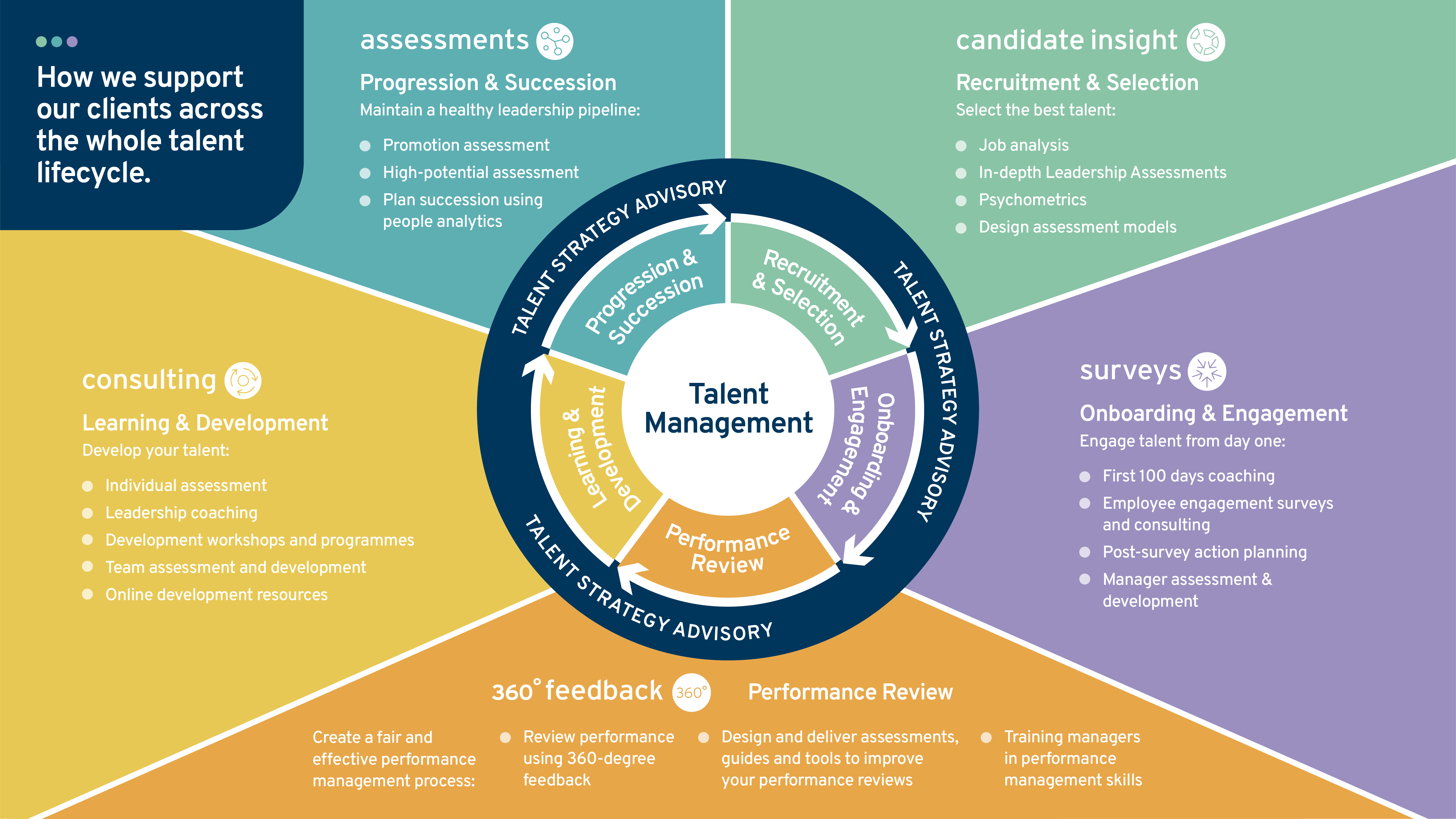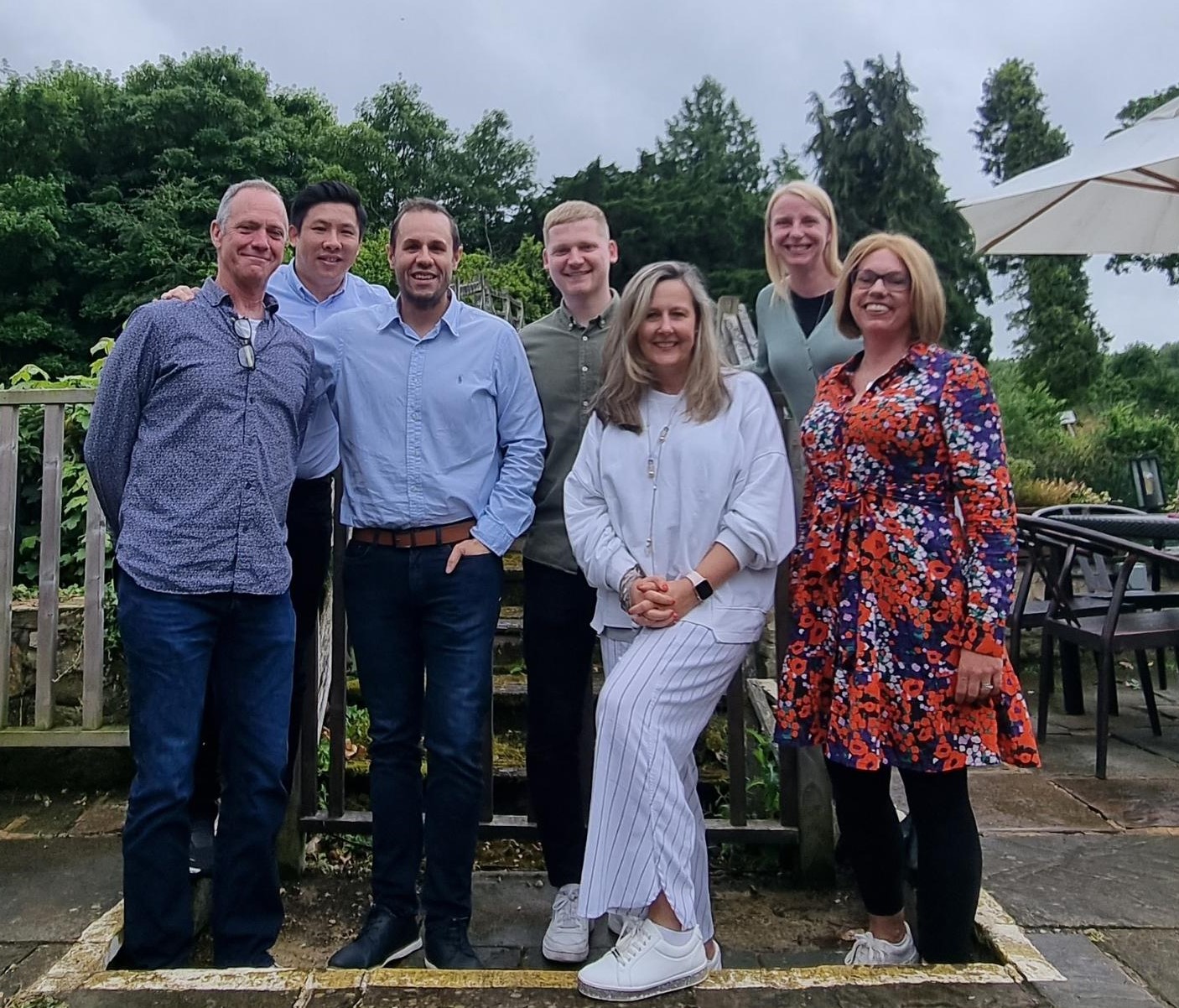We recently ran a webinar presenting the results of our 2022 research into talent management and offering guidance on transforming talent processes through a joined-up approach to talent management. But why did we think this was an important topic to tackle?
Why focus on talent management?
The concept of talent management – the process of identifying, developing and retaining employees with the potential to become future leaders – is not new, but has come into focus in recent years as we see a tougher labour market and workforce trends that are making talent attraction and retention a more complex task for organisations.
There are many different approaches to talent management, but all share the same goal: to ensure that an organisation has the right people in the right roles at the right time. An effective talent management strategy will help an organisation:
- attract, develop and retain high-performing employees;
- ensure that all employees can reach their full potential;
- create a pipeline of talent that can be promoted into senior positions.
Organisations that invest in talent management are more likely to be successful in the long term because a well-designed talent management strategy will help an organisation to build competitive advantage and improve its bottom line.
The importance of talent management in challenging times – the war for talent
The ‘war for talent’ is a term that was first coined in the late 1990s by Steven Hankin of McKinsey & Company. It refers to the growing competition for high-quality employees and the need for companies to adopt new strategies to maintain a strong pipeline of talent.
The independent Office of Budget Responsibility recently warned that the UK is in a recession and is expected to stay in one for the rest of 2023 and, undoubtedly, challenging economic times have an impact on approaches to, and investment in, talent management (and, arguably, make robust talent management processes more important than ever).
An unstable economic environment will impact heavily on budgets underpinning investment in talent. That said, many organisations are coming around to the idea that investing in people is no longer a ‘nice to have’ given the challenges they have already been feeling due to the pandemic, skill shortages, the ‘Great Resignation’ and hybrid working – they are realising that they need to invest consistently and measure the ROI on these investments to develop the business case for them.
Furthermore, a tighter labour market inevitably leads to the increased importance of retaining talent, and leadership must play a role here. As agility is key to survival during a downturn, it is likely that responsibility for skills management and development becomes increasingly leadership-led (or even employer-led), with leaders increasingly taking on the role of developing the next generation of leaders based on real-time people data.
Our webinar
We are convinced that a robust, integrated talent management strategy is essential to ensure success, and we are not alone:
- Global data from Josh Bersin tells us that organisations with highly effective talent management strategies enjoy higher revenue by employee and significantly lower turnover of high performing employees.
- Strong talent management leads to higher customer satisfaction (Youndt, et. al., 1996), and enhanced organisational innovation (Verburg, et. al., 2007).
With this in mind, we carried out research in 2022 with over 70 HR and L&D professionals from a wide range of industries to find out about their current approaches to talent management. This research produced some worrying results:
- 34% of respondents do not have a talent strategy.
- Only 7% of respondents said that improving or sustaining the talent pipeline is the top priority of their executive leadership teams, and 35% said it is not among their top priorities at all.
- Over half of the organisations we surveyed do not have an HR professional on their executive team.
Our webinar outlined our thinking – the need for a holistic, joined-up solutions involving cross-disciplinary interaction and long-term strategic thinking. Put another way, we need a systemic approach which taps into and takes account of influences across the organisation and outside of it. This is why, we argue, every organisation’s top team needs to place talent issues front and centre.
Talent management across the employee lifecycle – our role
We are a team of 23 people based in Bristol, with a network of associates and partners. We have been operating for over 25 years applying business psychology theory and research to our purpose, which is to improve leadership based on our firm belief that a better world needs better leadership. Our mission is to identify and develop the kinds of leadership that create the conditions for people, organisations and societies to thrive sustainably.
The services and tools we offer span all stages of the talent lifecycle (recruitment and selection, onboarding an engagement, performance review, learning and development, progression and succession) and all levels of the organisation – helping our clients to create the ‘red threads’ across processes and throughout the organisation that underpin an integrated, joined-up approach to talent management.

We like to think about talent processes as bridges between different stages of the employee lifecycle as people enter the organisation, build their networks, develop their understanding of the culture, use their skills, do their work and seek skills and career development. Thinking in this way helps us to see that where those bridges don’t connect with each other, meaning that employees’ journeys become harder and slower, and that they may get lost or fall through the cracks in the system. We need to ensure these connections between stages and processes within the talent lifecycle are strong, seamless and consistent.
If you are convinced that a focus on talent management is what you need to help your organisation thrive throughout this challenging economic climate (and beyond), then this is the perfect time to talk to us. Please get in touch so we can discuss your requirements with you.





















